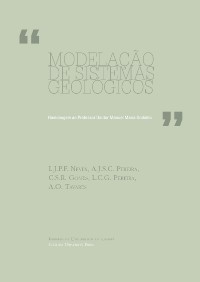Please use this identifier to cite or link to this item:
https://hdl.handle.net/10316.2/36284| DC Field | Value | Language |
|---|---|---|
| dc.contributor.author | Aumento, Fabrizio | |
| dc.date.accessioned | 2015-04-07T15:02:17Z | |
| dc.date.accessioned | 2020-09-09T13:30:21Z | - |
| dc.date.available | 2015-04-07T15:02:17Z | |
| dc.date.available | 2020-09-09T13:30:21Z | - |
| dc.date.issued | 2011 | - |
| dc.identifier.isbn | 978-989-97106-0-3 | |
| dc.identifier.isbn | 978-989-26-1009-2 (PDF) | |
| dc.identifier.uri | https://hdl.handle.net/10316.2/36284 | - |
| dc.description.abstract | Researchers world-wide have spent the last 60 years in trying to develop reliable systems which might provide early warnings prior to the occurrence of earthquakes. Amongst the techniques most studied have been variations in Radon concentration, as measured both in the sub-soil and in ground water. In some cases major increases in Radon emissions, followed by rapid decreases, were reported prior to major earthquakes; these gave very successful predictions that earthquakes were forthcoming; the Haicheng (China) earthquake of 1984 is a fine example of successful predictions. On other occasions identical monitoring systems failed to provide reliable precursors; either false or even no alarms at all were given, as in the Tangshan (China) earthquake of 1985. Poor results continued in subsequent years. The L’Aquila earthquake of 2009 prompted us to report on results of Italian studies on Radon gas variations as applied to exploration, neotectonics and earthquake prediction. These studies are based on data stored from 1997 from two arrays of twelve simultaneously recording Radon stations, one on the volcanic island of Terceira, Azores, Portugal and the other on the Appenninic region of Northern Latium, Italy. We show that it is not sufficient to study data from isolated recordings of variations in Radon peak intensities. There is much more to be learned from multiple, long term data analyses; these permit us to define the characteristic Radon “signals” in each area studied. Unwanted interferences can then be removed from subsequent recordings. The residual anomalies may be indicative of neotectonic activity in both time and space. | eng |
| dc.language.iso | eng | - |
| dc.publisher | Imprensa da Universidade de Coimbra | por |
| dc.publisher | Laboratório de Radioactividade Natural da Universidade de Coimbra | por |
| dc.relation.ispartof | http://hdl.handle.net/10316.2/36282 | por |
| dc.rights | open access | - |
| dc.subject | Radon | eng |
| dc.subject | Neotectonics | eng |
| dc.subject | Mapping | eng |
| dc.subject | Earthquakes | eng |
| dc.title | Radon in neotectonics and earthquake prediction | por |
| dc.type | bookPart | por |
| uc.publication.firstPage | 13 | - |
| uc.publication.lastPage | 27 | - |
| uc.publication.location | Coimbra | por |
| dc.identifier.doi | 10.14195/978-989-26-1009-2_1 | - |
| uc.publication.section | Parte I: Conferências | por |
| uc.publication.digCollection | PB | por |
| uc.publication.orderno | 1 | - |
| uc.publication.area | Ciências Naturais | por |
| uc.publication.bookTitle | Modelação de sistemas geológicos: livro de homenagem ao Professor Manuel Maria Godinho | - |
| uc.publication.manifest | https://dl.uc.pt/json/iiif/10316.2/36284/208986/manifest?manifest=/json/iiif/10316.2/36284/208986/manifest | - |
| uc.publication.thumbnail | https://dl.uc.pt/retrieve/11146437 | - |
| uc.publication.parentItemId | 54495 | - |
| uc.itemId | 69826 | - |
| item.grantfulltext | open | - |
| item.fulltext | With Fulltext | - |
| Appears in Collections: | Modelação de sistemas geológicos: livro de homenagem ao Professor Manuel Maria Godinho | |
Files in This Item:
| File | Description | Size | Format | |
|---|---|---|---|---|
| radon_in_neotectonics.pdf | 3.63 MB | Adobe PDF |  |
Items in DSpace are protected by copyright, with all rights reserved, unless otherwise indicated.
